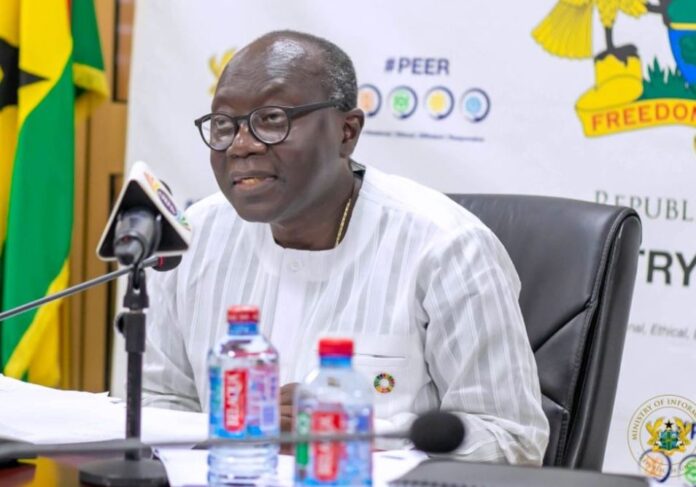
The Ghana Broadcasting Corporation, GBC is 80 years old and the best gift to offer the corporation is the review of the TV licence fee from its rather meager amount of thirty pesewas per annum, to a more realistic figure of 3 cedis per month which holds a promising future for public service broadcasting.
Today, the GBC and other stakeholders held a news conference at Broadcasting House in Accra to kick start a joint public education on the collection of the reviewed TV Licence fee scheduled to begin next month.
The News conference followed series of public lectures which advanced arguments for the review of the TV licence fee and the need for a collective focus to make its collection a success.
The Director General of GBC Major Albert Don-Chebe in his anniversary lecture was full of gratitude to all the key players including parliament for the upward review of the TV Licence fee.
One surely agrees with the Director that General’s foresight in the prospects of the increased TV License fee, especially as a reliable source of funding for the GBC.
One unique aspect of the TV licence fee in Ghana is that, it is only the legislature that has the power to review it and this is also another major contributing factor for the delay in the review process. Looking at the trend, the TV license law was first introduced and implemented in 1966.
As it stands, there is the need for vigorous and sustained public education to ensure effective collection of the fee.
So, how do we sustain this promising hope of financing of public service broadcasting? Looking at what lies ahead of us, the mode of collection should be very different from what pertained in the past which obviously was not effective.
There have been several schools of thought on the mode of collecting the TV licence fee in Ghana.
The latest expression of opinion was Radio Ghana news that was broadcast on June 26, 2015.
Among the diverse views expressed was the use of an electronic platform for the collection. These views cannot be over emphasized because the world is now at an electronic age in which all productive businesses are conducted on an electronic platform.
Therefore going from house to house with pen and paper to collect TV Licence fee in this era of ICT would be like using a hoe and cutlass for commercial farming.
This view of using an electronic platform in the collection of the TV License fee was suggested by some TV License fee collectors since 1998 when the manual collection had dropped from its peak of about 30 per cent nationwide to about 10 per cent.
There are already numerous options of electronic platforms being suggested. Some of these are adding the TV Licence fee to a utility bill, use of a banking system or coding the free to air Television transmission in Ghana.
The issue of coding is more relevant as Ghana is going fully digital in its television transmissions.
The coding could also mean that a TV Licence fee could be paid in the form of a prepaid card just like a telephone.
This could mean that without a prepaid PIN code that would be entered, no TV set could receive a signal on the digital transmission.
Such coding would also be in a conformity with the Television Licensing Decree 1966 (NLCD. 89) and (LI) 1520, 1991 which states that; unless there is in existence of a Television receiving set’s license, an individual or organization should not own, install or use a TV set.
It is hoped that if the TV License fee would be made a percentage of utility bills such as electricity, it will serve as a perpetual source of dynamic and reliable financing of public service broadcasting.
This means that there will be no need to wait for any parliamentary review for value addition again.
It is expected that all hands will be on deck to ensure GBC has a reliable and sustainable funding from the public which it serves and not to be dependent on the government.
FOR IT IS SAID HE WHO PAYS THE PIPER CALLS THE TUNE.
By: Micca K. Tulevo – former TV License inspector



